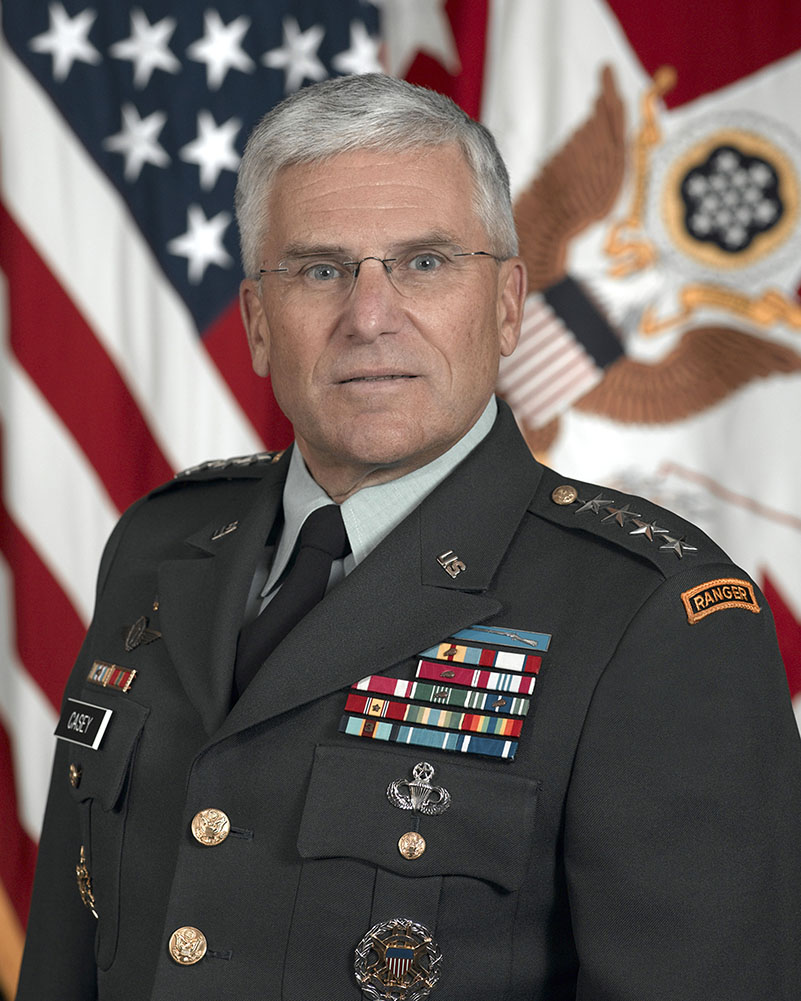Gen. George Casey, the Army chief of staff, and Army Secretary John McHugh testified to the Senate Armed Services Committee on repealing Don’t Ask, Don’t Tell today and made clear they are less than enthusiastic about repealing the policy.
Casey and McHugh, like many lawmakers, said they are waiting for the completion of a policy review before they make a decision. The review could take up to a year.
“I do have serious concerns about the impact of repeal of the law on a force that is fully engaged in two wars and has been at war for eight and a half years. We just don’t know the impacts on readiness and military effectiveness,” Casey said, adding that he fully supports Defense Secretary Robert Gates’ call for the review.
Casey said he can only offer his “informed military judgment to the secretary of defense, the president and Congress” after he sees the review.
“Exactly,” said Sen. John McCain (R-AZ), the ranking member of the committee and historically a staunch supporter of DADT. McCain is also waiting for the review to make a final decision.
“Sen. McCain has not taken it [repeal] off the table, but he wants to wait until the policy review is concluded,” his spokeswoman, Brooke Buchanan, told TPMDC yesterday. McCain had said in the past that he would support a repeal if military leaders agreed. But the outspoken support of Joint Chiefs Chairman Adm. Mike Mullen has not changed his mind.
That review, McHugh said, is still in the very beginning stages.
“It’s still being set up,” he said.
The policy, enacted 17 years ago, prohibits openly gay men and women from serving in the military.
McHugh and Casey were also reluctant to support putting a moratorium on discharges under DADT during the review. Gates has said the Pentagon is looking into such a moratorium.
“We don’t feel we have the legal authority to impose that from the department side,” McHugh said. But, he said, if Congress passes a moratorium the Army will “respect and obey that.”
He continued that such a moratorium may “bring a legal complication” to several discharge cases already underway.
Casey agreed it would “complicate the whole process” of the review. “Anything that complicates it more, I think I would be opposed to,” he said.
“I would recommend against it,” he said.
Mullen was much more enthusiastic in his hearing before the committee.
“No matter how I look at this issue, I cannot escape being troubled by the fact that we have in place a policy which forces young men and women to lie about who they are in order to defend their fellow citizens,” he said. “For me, personally, it comes down to integrity, theirs as individuals and ours as an institution.”









